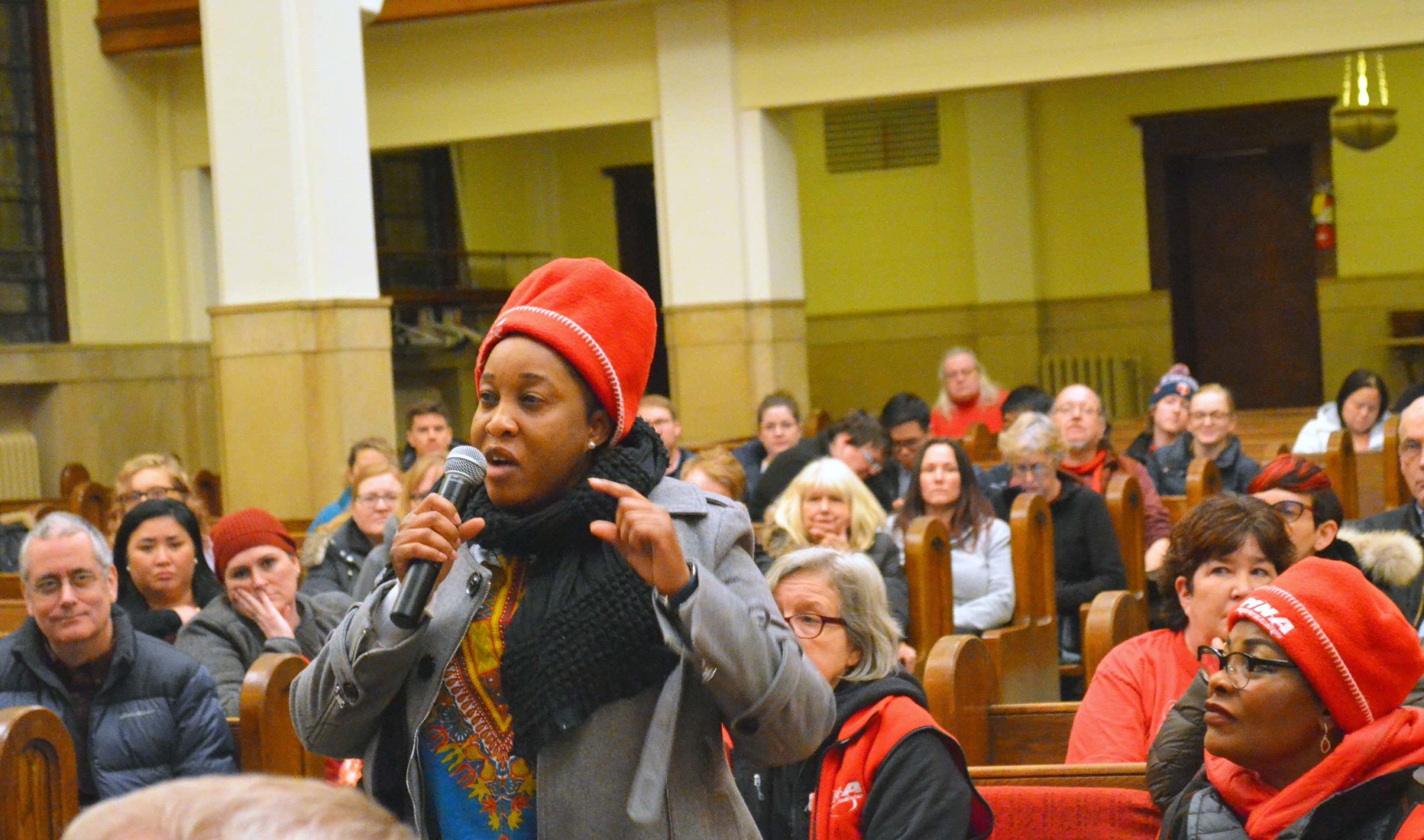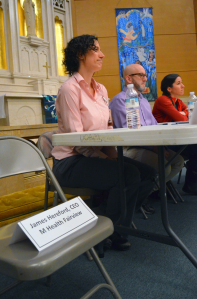
A Bethesda Hospital nurses speaks out at a town hall meeting hosted by her union.

Share
Alarmed by the news Fairview Health is considering drastic cuts to two St. Paul hospitals, health care workers, patients and community members have quickly organized a campaign to keep Bethesda and St. Joseph’s open, with unions leading the way.
The Minnesota Nurses Association and SEIU Healthcare Minnesota hosted a town hall meeting last night at a church two blocks from Bethesda. The pews buzzed with energy and outrage as nurses, doctors, patients and community leaders took turns at the microphone, sharing personal stories about how critical the hospitals are to their community.
Dr. Katie Freeman, who practices family medicine at HealthEast, said she referred a patient just that day to St. Joseph’s for OB-GYN services. If the hospital closes, she said, the nearest hospital in the system would be in suburban Maplewood.
“Having a hospital you can get to easily, a hospital in your neighborhood that you can access by public transit – that allows us to access care,” Freeman said. “Before any decisions are made, the people that use these hospitals need to have some input on what they need.”
But the communities Bethesda and St. Joseph’s serve stretch beyond St. Paul’s neighborhoods.
Bethesda is an intermediate-term care facility that takes patients from many different hospitals in the Twin Cities – sometimes, MNA President Mary Turner said, from other states. St. Joseph’s, the first hospital in St. Paul, also serves a unique patient population, including those with mental health issues.
If Fairview proceeds with plans to close more than half of Bethesda’s beds by Feb. 10, and possibly close St. Joseph’s altogether, it will have a ripple effect at health care facilities across the region.
Fairview has also announced plans to close a substance-abuse-recovery program for people who communicate in American Sign Language – a one-of-a-kind facility in the U.S., deaf advocates like Phillip Steinbruckner said.
“My access to treatment is not the same as my hearing peers,” Steinbruckner, who has been sober for one year thanks to the Fairview program, said. “Deaf-to-deaf, sign-to-sign (communication) is really key for our treatment.”
Unions invited Fairview Health CEO James Hereford to attend the town hall meeting, but he sent a letter declining the offer. His seat, marked with a placard bearing his name, remained empty on the stage for the duration of the meeting.
Turner pointed out that, in spite of Fairview’s supposed need to cut costs, Hereford recently received a significant pay increase, earning $913 per hour.
“This is patient abandonment,” Turner said. “As a nurse, if I were to abandon my patients, I’d lose my license.”
The coalition of community members, workers, deaf advocates and others concerned about the proposed cuts – the “No Cuts On Quality Care” coalition – is urging supporters to submit their stories of care and their concerns about the cuts by email to comments@fairview.org.


